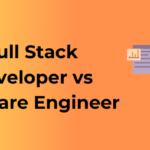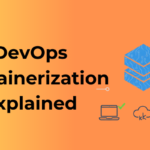Let’s face it, not all programming jobs are created equal. Some developers find themselves in more profitable positions than others, and the reasons for these pay disparities can be both fascinating and eye-opening for that you need to upgrade your skillset first. If you’re wondering why some coding gigs come with sky-high salaries, you’re in the right place. Let’s unpack some of these factors together!
The Economics of Supply and Demand
At its core, high salaries in the programming world often come down to *simple economics*: supply and demand. Some programming skills are rare, and companies are willing to pay a premium to secure talent with these specialized abilities. For instance, expertise in niche technologies like *machine learning frameworks* or *cloud architecture* is less common. Employers are scrambling to find people with these skills, meaning bigger paychecks for those who have them.
The Role of Complexity
Another big factor lies in the **complexity and impact of the work** associated with certain programming roles. Think about it this way: creating a fun app for tracking your exercise routine is different from designing software that handles **millions of financial transactions per day**. Jobs that involve solving high-stakes, intricate problems are naturally more demanding and require a very specific skill set. Thus, programmers working in areas like **cybersecurity**, **artificial intelligence**, or **blockchain** often earn a significant salary boost for their efforts.
Industry-Specific Needs
The industry in which a programmer works also greatly influences their paycheck. For example, the financial sector—think banks, hedge funds, and fintech firms—relies heavily on cutting-edge technology. Programmers who develop fast, secure trading platforms or advanced algorithms for stock market analysis are *worth their weight in gold* because they directly impact a company’s bottom line. On the flip side, sectors like education or non-profits might offer fulfilling work, but budgets may limit the ability to offer sky-high salaries.
What Does This Mean for You?
If you’re aiming to land one of these lucrative roles, it’s important to plan strategically. Here’s what you can focus on:
- Specialize, specialize, specialize: Learn niche skills that are in high demand, such as DevOps, quantum computing, or natural language processing.
- Keep an eye on emerging trends: Stay informed about new technologies that are gaining traction. Getting in early could pay off big time.
- Consider certifications: Earning certifications from reputable organizations in areas like cloud computing (AWS, Azure) or cybersecurity (CISSP) can really set you apart in the job market.
At the end of the day, knowing what sets high-paying programming jobs apart can help you make smarter choices in your career path. Whether you’re taking your first coding course or you’re already a seasoned developer, understanding the demand for specific roles gives you an edge in navigating an ever-changing industry. Start by focusing your efforts on areas where demand is high, and watch your career—and your paycheck—take off!
Specialized Roles That Stand Out in High-Tech Industries
Did you know that not all programming jobs are created equal? While programming is generally a lucrative career path, roles in certain specialized niches within high-tech industries truly stand out for their stellar salaries. If you’re dreaming about high paychecks and challenging, cutting-edge work, let’s talk about some specialized programming roles worth exploring. These positions are not just about the money—they also let you work on impactful projects that are shaping the future.

1. Machine Learning Engineers
When it comes to specialized roles with huge earning potential, *Machine Learning Engineers* are at the top of the list. These are the programming wizards who design and implement the algorithms that power artificial intelligence models. Their work is responsible for everything from recommendations on Netflix to self-driving cars. Machine learning as a field requires expertise in programming languages like Python, R, or Java, alongside a strong mastery of data science concepts.
What makes this role so lucrative is its direct connection to high-demand areas, such as AI and automation. This field continues to boom because every industry—healthcare, retail, entertainment, you name it—is clamoring to add smart features to their offerings.
2. Cloud Computing Specialists
In today’s era of digital transformation, cloud platforms like AWS, Google Cloud, and Azure are the backbone of most businesses. This has made roles like *Cloud Engineers* and *DevOps Developers* some of the most high-paying positions in tech. These specialists handle everything from architecting cloud systems to managing vast distributed applications.
For developers in these roles, knowledge in tools like Kubernetes, Docker, and Infrastructure-as-Code technologies is a game-changer. They’re entrusted with keeping businesses scalable, secure, and fast—skills that employers are more than happy to pay a premium for.
3. Cybersecurity Experts
In an increasingly interconnected world, security is everything. Cybersecurity professionals, particularly those with programming expertise, command top salaries. As a *Security Software Developer* or *Ethical Hacker*, your work could involve thwarting cyberattacks, protecting sensitive data, or building secure code that hackers can’t crack.
The stakes are high in cybersecurity, and because breaches can cost companies millions of dollars, investing in top talent is a no-brainer. Skills in coding languages associated with network and system security, such as C++, Python, and JavaScript, come in handy here.
4. Blockchain Developers
If you’ve heard of cryptocurrencies or Web3, you’ll know why *Blockchain Developers* are a hot commodity. These developers create decentralized applications and smart contracts that are revolutionizing finance, supply chains, gaming, and even art through NFTs.
Programming in blockchain often involves languages like Solidity and Rust, and the field itself is still in its early stages. That means a lot of opportunity for growth (and earning power) as you establish yourself in this cutting-edge niche.
5. Algorithm Engineers
This lesser-known but highly specialized field is all about designing algorithms to solve complex computational problems. This might sound niche, but these engineers make software faster, more efficient, and smarter. Think of roles in this space as the foundation for innovations like Google’s search engine or real-time traffic navigation systems.
*Algorithm Engineers* typically earn high salaries because they require a deep understanding of mathematics, like linear algebra and calculus, along with terrific programming chops in low-level languages like C++ or unique specialties like MATLAB.
The Key to Thriving in Specialized Roles
- Stay Curious: Dive deep into your chosen niche. Industries tied to machine learning, blockchain, and cybersecurity evolve constantly—you’ve got to keep learning to stay relevant.
- Network: Connect with mentors and professionals already working in these fields. They can offer guidance, recommend resources, and even help secure that dream job.
- Work Smarter on Fundamentals: Most specialized roles still expect programmers to have strong foundational skills. Whether it’s Object-Oriented Programming or data structures, mastering the basics will support you in solving complex problems.
Programming Jobs Tied to Emerging Technologies That Yield Top Salaries
When it comes to programming jobs that pay the big bucks, roles connected to emerging technologies are climbing to the top of the salary charts. If you’ve been keeping an eye on the tech space, you already know how quickly industries are evolving and adapting to groundbreaking innovations. Let’s dive into what makes these careers so lucrative and what kinds of programming work dominate this cutting-edge world.
Why Emerging Technologies Are the Future
First things first: the appeal of emerging technologies comes from their disruption potential—they change how businesses operate, improve efficiencies, and unlock entirely new revenue streams. Think about artificial intelligence (AI), blockchain, machine learning (ML), cloud computing, Internet of Things (IoT), and quantum computing. Companies pushing the boundaries in these fields need skilled programmers more than ever to bring ideas to life, and they’re willing to pay handsomely for that expertise.
Top Programming Jobs in Emerging Tech
If you’re wondering which specific roles to aim for, here are some stellar examples:
- Machine Learning Engineers: These pros develop algorithms and models that allow systems to “learn” and improve automatically. Whether it’s powering recommendation engines or enabling autonomous vehicles, the demand is sky-high here.
- Blockchain Developers: With cryptocurrency and decentralized applications reshaping industries, skilled developers proficient in blockchain technologies like Ethereum, Solidity, and Hyperledger are earning enviable paychecks.
- AI Specialists: From chatbots to predictive analytics, AI experts design and implement solutions for businesses across finance, healthcare, entertainment, and beyond.
- IoT Software Engineers: Someone has to ensure that your smart thermostat talks seamlessly to your phone, right? These engineers develop the software that runs connected devices, turning futuristic concepts into reality.
- Cloud Engineers: With businesses moving their IT infrastructure to the cloud, professionals skilled in Amazon Web Services, Google Cloud, and Microsoft Azure are in hot demand.
How to Tap Into These High-Paying Jobs
You might be asking: “Okay, but how do I snag one of these roles?” Great question! Here are a few actionable tips:
- Stay updated: Emerging tech moves incredibly fast. You need to be ahead of the curve, consistently learning new programming languages and frameworks. For instance, Python, Kotlin, or R could help you break into AI or ML fields.
- Sharpen problem-solving skills: These jobs often revolve around solving incredibly unique and complex challenges. Be prepared to think outside the box.
- Take part in specialized training: Look into certifications or bootcamps in fields like AI, blockchain, or cloud computing. Many companies value a specialized certificate as much as—or even more than—a traditional degree.
- Network like a pro: Joining communities tied to these technologies, such as online forums or attending tech meetups, can open up career-changing opportunities.
The Influence of Experience and Niche Skills on Programmer Salaries
When it comes to programming salaries, there’s more than just luck or being in the right place at the right time—it’s about experience and the unique skills you bring to the table. While everyone has to start somewhere, it’s clear that the more you master your craft and specialize in certain high-demand areas, the more you stand a chance to earn a top-tier paycheck. Let’s break it down, shall we?
Why Experience Really Pays Off
If you’re newer to the programming world, don’t fret—it’s a learning curve, and everyone was in your shoes once. But here’s the deal: the longer you’ve been working in a programming role, the more employers trust your ability to handle complex problems, lead projects, and mentor others. This isn’t just your number of years on paper—it’s about how much you’ve built your reputation as a problem solver and an innovator.
Pro-tip: Instead of measuring your work experience simply by the clock, think about how you demonstrate growth. Do you consistently pick up new skills, refine existing ones, and contribute meaningfully to your team or product? These are the building blocks to higher paychecks.
What Are Niche Skills and Why Do They Matter?
Now, let’s talk niche skills. Not all programming jobs are equal, and not all skills are valued the same across industries. There are certain technologies, frameworks, or fields that employers are dying to find talent for. If you’re someone who’s mastered those “hard-to-find” skills, you automatically become more valuable.
Here are a few examples of niche programming skills that stand out:
- Machine Learning and Artificial Intelligence (AI): As AI continues to shape the future, programmers who can build intelligent models, algorithms, and systems are in significantly high demand.
- Blockchain Development: With industries exploring blockchain far beyond cryptocurrency, developers in this space are earning higher salaries for their expertise.
- Cloud Computing Technologies: Companies shifting to cloud infrastructure need specialists in tools like AWS, Azure, or Google Cloud.
- Cybersecurity Expertise: With ever-growing concerns about data breaches and hacking, skilled programmers who can protect systems and write secure code are essential.
If you’re passionate about learning something that’s not mainstream yet, but has the potential to make waves in the programming world, pursue it enthusiastically!
How Experience and Niche Skills Work Together
Here’s where the magic happens: when you combine years of hands-on experience with sought-after niche skills, your career trajectory changes dramatically. Employers will not only want you but will be willing to pay a premium to onboard you. You become the person they know they can’t find around the corner—a programmer who has both a proven record and expertise in cutting-edge fields.
What You Can Do Today
If this sounds a little overwhelming, don’t worry! Focus on taking it one step at a time. Here’s how you can start:
- Pick an area or technology that excites you and has high market demand.
- Keep leveling up your skills through consistent projects, online courses, and certifications.
- Document your achievements, whether it’s through a portfolio, a GitHub repository, or a LinkedIn profile.
- Seek mentorship or join a community of programmers to exchange knowledge and stay inspired.
Global Opportunities: Programming Roles With Premium International Pay
Ever imagined combining your love for travel with a lucrative programming job? Believe it or not, the tech industry has truly become a global playing field over the years. Companies all over the world are searching for talent, and if you’ve got the skills and the willingness to take your expertise across borders, the opportunities (and the paychecks!) can be incredibly rewarding.
Why Global Programming Jobs Stand Out
Software development and programming are universal languages that transcend geographical boundaries. Technology companies in countries like the U.S., Switzerland, Germany, and Japan often offer higher-than-average salaries for skilled developers. Let’s not forget the ballooning demand for remote work – you could land a job with a top company in Silicon Valley while sipping coffee at a café in Italy!
Here’s why these global roles can come with premium pay:
- Cost of living differences: Some countries offer higher pay to match their living costs. But if you’re working remotely, this could work to your advantage – high salary, lower living costs!
- Niche expertise: Companies abroad need highly specialized skills – AI, blockchain, or even multilingual programming talent – that might be less accessible in their local markets.
- Talent shortages: In many high-tech hubs, there’s a greater number of open roles than qualified local candidates. This competition naturally raises salaries to attract top-notch talent.
Top Countries Offering Premium Pay for Programmers
So, where are the programming goldmines? Pack your virtual suitcase and consider these destinations:
- United States: Home to tech giants like Google, Amazon, and Meta, the U.S. consistently boasts top-paying programming jobs. Expect a six-figure salary for in-demand roles like software engineers or DevOps specialists.
- Switzerland: Known for its innovative tech landscape, Switzerland pays programmers handsomely while also offering an incredible quality of life.
- Germany: A hub for startups and thriving traditional industries modernizing their tech core. Programmers with skills in automation and cloud services often do particularly well here.
- Singapore: This Asian tech powerhouse is booming with opportunities in FinTech, AI, and cybersecurity. The salaries are competitive, and taxes are low!
- Canada: With its open immigration policies for tech professionals, Canada offers roles in budding AI research, VR/AR development, and more, especially in hubs like Toronto and Vancouver.
Practical Tips for Landing High-Paying Global Jobs
Breaking into the global tech job market can feel daunting at first, but there are some tried and tested ways to give you an edge:
- Brush up on your language skills: Even if the primary job language is English, learning a bit of the local language can give you a leg up in the hiring process.
- Target companies offering visa sponsorships: Many top companies are open to assisting with relocation, especially for in-demand skills.
- Leverage global freelancing platforms: Sites like Toptal or Upwork can be stepping stones to building an international client base, paving the way for full-time roles later on.
- Network strategically: Join international programming communities on LinkedIn or participate in global hackathons to connect with recruiters worldwide.
Industry-Specific Programming Jobs That Pay the Most
Let’s talk about one crucial factor that can make a huge difference in a programmer’s paycheck: the industry you work in. Yes, the world of programming doesn’t operate in a vacuum. Your salary can greatly depend on the sector or industry you become a part of. If you’re curious about where the big bucks are, stick around—this may just give some clarity to your career path!
Where the Money Lives: High-Paying Industries
Every industry these days leverages software in some way, but not all industries compensate their programming talent equally. Here are a few standout sectors when it comes to top-tier pay.
- Finance and Banking: Wall Street isn’t just about traders anymore; programmers are its new rockstars. Whether it’s algorithmic trading or developing highly secure banking apps, finance companies shell out serious money for software engineers and developers with the right skills. Proficiency in Python, R, or financial data modeling could land you in this lucrative arena.
- Healthcare Technology: With the fast-paced growth of health-tech solutions, like AI diagnostics and electronic health record systems, healthcare companies are investing heavily in top programming talent. Working in healthcare tech isn’t just well-paying, it’s also meaningful—you might be writing code that saves lives!
- Aerospace and Defense: Think rocket science pays well? You’d be correct! With projects ranging from spacecraft navigation to national defense systems, this industry demands impeccable problem-solving skills and often advanced expertise in C, MATLAB, or embedded systems. The stakes are high, but so is the paycheck!
- Gaming and Entertainment: This is where creativity meets cutting-edge programming. Crafting the next AAA video game or working on immersive VR experiences can come with hefty pay—especially for those skilled in graphics programming, 3D engines, and languages like C++ or Unity.
- Big Tech (FAANG companies): Companies like Facebook (Meta), Amazon, Apple, Netflix, and Google are renowned for offering their engineers some of the most competitive salaries globally. But these jobs require not only technical skills but also the ability to thrive under high pressure and innovate constantly.
Why These Industries Pay More
Now, you might be wondering—what’s so special about these industries? The answer is simple: it’s a combination of high complexity, scarcity of skills, and big-budget operations. Sectors like finance and aerospace deal with extremely sensitive or mission-critical systems, so they’re willing to pay more for top-notch programming talent. Similarly, industries like gaming thrive on innovation and cutting-edge tech, which means they need the best of the best in their field.
How To Break Into These Industries
If you’re eyeing one of these high-paying roles, here are a few actionable nuggets to consider:
- Specialize: Each industry has specific tech needs. Learn the tools and programming languages in demand—like R for finance, Python for healthcare, or C++ for gaming.
- Network: Getting a foot in the door often comes down to who you know. Attend industry conferences and interact with professionals online to make those key connections.
- Certifications: Some industries (think aerospace or finance) may favor certifications in addition to experience. Consider certifications in areas like cybersecurity, machine learning, or specialized systems.
How Certifications and Advanced Education Boost Programmer Paychecks
Let’s talk about something you might already suspect: education and certifications. In the world of programming, they can be a goldmine for increasing your paycheck. But how exactly do they work their magic? Glad you asked—let’s break it down.
Why Should You Care About Certifications?
Certifications are like badges of honor that shout to employers, “I’ve got what it takes!” They validate your skills in a specific technology or tool. For instance, a certification in cloud computing from AWS (Amazon Web Services) or Microsoft Azure can open doors to lucrative cloud architect roles. Similarly, accreditation in cybersecurity or machine learning shows you’re specialized, prepared, and serious about your craft. Who wouldn’t want someone like that on their payroll?
What’s great is that certifications often focus on practical, job-ready skills. So not only can they make your resume shine, but they also prepare you to hit the ground running in high-stakes environments. Employers see this as a win-win. Bonus? Many of these certifications come with internationally recognized prestige, ramping up your appeal even more.
Advanced Education = Bigger Paychecks?
While a bachelor’s degree is often the standard ticket into the tech world, pursuing advanced education like a master’s or Ph.D. can set you apart from the pack. But it’s not just the letters after your name that matter—it’s also about the opportunities to dive deeply into new, cutting-edge skills.
- Master’s Degrees: Degrees in fields like data science, artificial intelligence, or software engineering are highly sought after. For instance, if you’ve mastered AI development through a graduate program, you’re not just building apps—you’re building robots that think. Who wouldn’t want to pay top dollar for that?
- Ph.D. Holders: Research roles for programmers often look for candidates with advanced education, especially in complex areas like quantum computing or blockchain technology. As rare as these skills are, the salaries are proportionally sky-high.
When Should You Seek Advanced Credentials?
Now, don’t rush to sign up for a degree just yet. The timing and purpose matter. Are you trying to switch to a higher-paying niche like AI or cloud architecture? Then a certification might be your fastest route. Do you want an in-depth understanding of your domain along with higher academic credentials? A master’s could be the smart move.
Pro tip: Many high-demand certifications can be earned part-time or online. So, even if you’re juggling work or life commitments, there’s always a way to add that finishing touch to your resume.
What Makes Certifications and Advanced Education Worth It?
- Increased Salary: Certified professionals often earn 10-20% more than their non-certified peers.
- Networking Opportunities: Many programs include access to industry experts and hiring managers, which is priceless.
- Staying Ahead: These credentials keep you sharp and updated, crucial in a fast-paced field like programming.




















